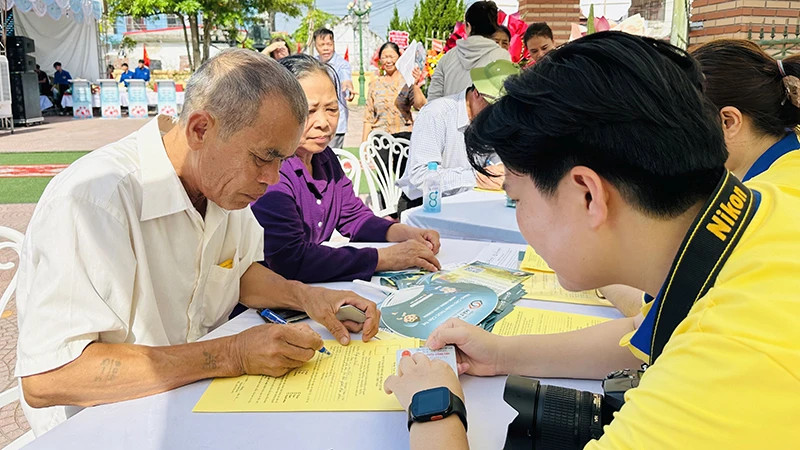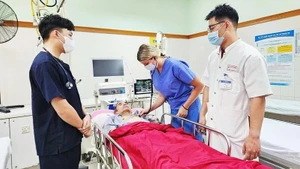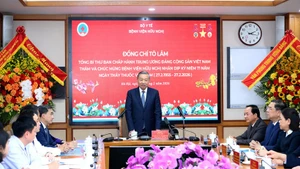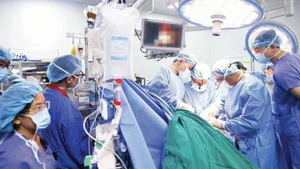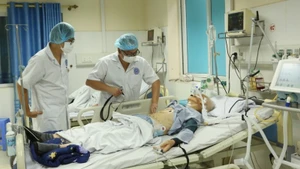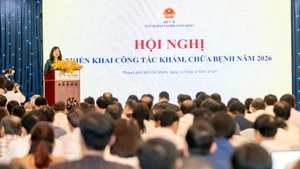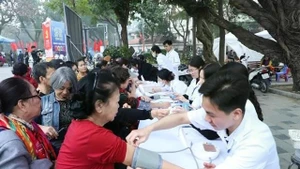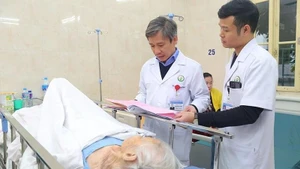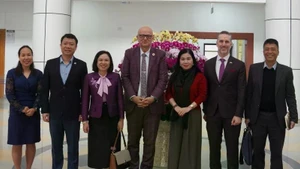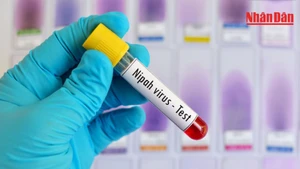According to data from the National Coordinating Centre for Human Organ Transplantation, the number of people receiving organ transplants in Vietnam was 1,000 in 2023, becoming the country with the most organ transplant recipients in Southeast Asia.
However, these organ transplants were mainly taken from living donors, while the number of organs taken from brain-dead people was very small, with only 12 people in 2023 and 12 brain-dead donors in the first six months of 2024.
Due to the lack of organs from brain-dead donors, the majority (94%) of transplants are from living donors. Associate Professor, Dr. Dong Van He, Director of the National Coordinating Centre for Human Organ Transplantation, said: “We wish to receive more organs from brain-dead and heart-dead people. A brain-dead or heart-dead person can donate eight organs (kidney, liver, lung, heart, pancreas, cornea, etc.), while a living person can only donate and transplant one organ, not to mention the health risks for the living donor after organ donation.”
At a conference on organ donation, collection, and transplantation in Vietnam held on July 16, experts in this field pointed out that there are many reasons for the low rate of people registering to donate organs and tissues in Vietnam.
Associate Professor, Dr. Nguyen Thi Kim Tien, President of the Vietnam Association for Organ and Tissue Donation, said that the first barrier to organ donation is awareness, as the majority of people still have the concept of “death with whole body” and are afraid to touch the body of a loved one after they pass away, in addition to the fear of affecting their family. A greater number of people do not realise that organ donation is a culture, responsibility, and compassion for the community. Moreover, people do not clearly understand how to register for organ donation. Therefore, it is necessary to change the regulations on organ and tissue donation to help increase the source of organs, from which many lives will be revived, and many deaths will not just “return to dust” but will multiply life and bring more happiness to the living.
According to Venerable Thich An Dat, Member of the Executive Council of the Vietnam Buddhist Sangha, burial or “death with whole body” is not a Buddhist concept. Therefore, in the coming time, the Vietnam Buddhist Sangha will implement a communication programme about organ and tissue donation, which is one of the practices in the spirit of compassion of Buddhism. The Vietnam Buddhist Sangha will coordinate with the Vietnam Organ and Tissue Donation Association to visit provinces and cities to call on and encourage monks, nuns, and Buddhist followers to register for organ and tissue donation. At the same time, seminars will be organised to help people understand that organ and tissue donation after death does not affect spirituality and to spread the message of compassion and forgiveness of Buddha.
The second major barrier is legal issue. Associate Professor, Dr. Dong Van He shared that currently there are no sub-law documents providing specific guidance on organ and tissue donation, while some specialised and complex issues are regulated in the law in a relatively brief and non-specific manner. Therefore, it is difficult to mobilise people to donate organs. However, what is more worrying is that doctors cannot retrieve donated organs from the dead in many cases. There were cases in which almost the whole family had agreed to donate the organs of their brain-dead relative, but at the last minute, the organ retrieval team was forced to stop due to the disagreement of only one family member, and the person waiting for the transplant had to continue to wait for better luck next time.
The National Coordinating Centre for Human Organ Transplantation just established nine councils and built a coordination process and criteria for organ transplantation and emergency. The establishment of these councils will help medical facilities participate in the organ and tissue donation and transplant network with a transparent, effective and quick organ distribution process. Notably, the establishment of these councils with the participation of hospitals in the network will help develop more standardised procedures and spread messages about tissue and organ donation to each hospital and the medical community.
Currently, the whole country’s hospital network has only 26 hospitals participating in the promotion of tissue and organ donation. Experience from other countries shows that if the network of donor hospitals is expanded, there will be more organs for people in need of transplants. At the same time, the coordination between hospitals in the process of organ donation-transplantation should also be smoother, so there would be no need to transfer potential brain-dead people to other hospitals to get tissues and organs, because transfer between hospitals will increase the risk of cardiac arrest, affecting organs and transplantation.
The medical community must be trained to have correct understanding about organ donation and transplantation, so they will be confident and competent enough to spread that good deed to the community. Therefore, from August 2024, training content on organ transplantation, organ and tissue donation, Law on Organ and Tissue Donation, brain death, and the detection and management of potential brain death will be included in the regular training programme of Hanoi Medical University, then expanded to other medical universities.
Associate Professor, Dr. Nguyen Thi Kim Tien said that legal regulations need to be adjusted to increase the opportunity to donate organs after brain death, such as conditions for organ donation after death, age of organ donation, support for organ donors and their families, financial mechanisms for payment for donation, transplantation and post-transplantation, and so on. On the other hand, it is necessary to consider the registration of organ and tissue donation of each person as a testament so that in the unfortunate event that person becomes brain dead, his family cannot interfere with that testament. There should be regulations on the family members including only father, mother, wife, and children to request their consent to organ donation of brain-dead people, instead of the current regulations.
Communication work plays a very important role in organ donation and transplantation, helping each person better understand about this activity, which is giving life to other patients. Therefore, communication activities should spread the message of “giving is hold forever”.
